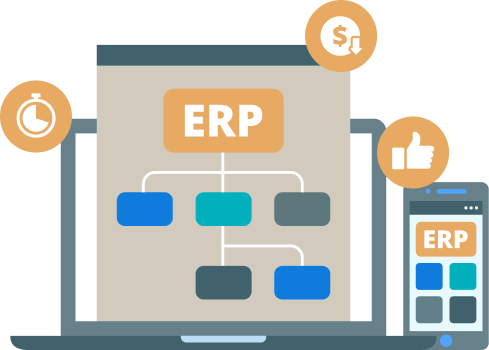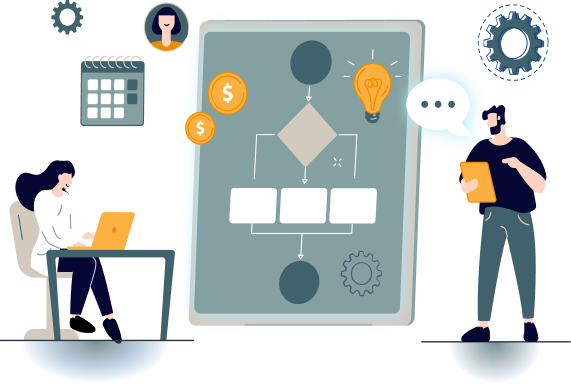



Custom ERP is designed to provide tailor-made functionality to address an enterprise’s unique operational and strategic needs. Custom ERP software development is aimed to build a scalable business-tailored system that integrates all business management functions and facilitates data-driven decision-making.
We integrate Agile methodology in our QA process. It is a continuous process rather than being sequential in which the development is aligned with customer requirements. The testing begins at the start of the project and there is an ongoing collaboration between testing and development.
The testing team works closely to understand your requirements. They follow the prioritized requirement practice: With each iteration, the team takes the most essential requirements remaining from the work stack to test on.



A detailed test plan is created that describes the scope of testing for the sprint.
It contains - systems and configurations that need to be tested, non-functional requirements like code quality, test approach—traditional, exploratory, automation—or a mix, documentation to refer, test environment requirements and setup, etc.

The QA team writes test cases according to the test plan and unites them into a test case document. For each test case, we specify its objective, the initial state of the software, the input sequence and the expected outcome.
It is a three-step process:



Here, unit and integration tests are built. Unit testing helps check correctness for individual units of code. When a software test case covers more than one unit, it is considered an integration test.
During unit testing, production code functions are executed in a test environment with simulated input. The output of the function is then compared against expected output for that input.

Executing all the test cases can be done either manually or with automation tools. The order in which the test cases are executed is critical here. The most important test cases are executed first.
It is common practice to schedule integration tests just after delivery sprints. We run a System Integration Test, focusing on how the app components work. So while app-specific bugs will primarily be reported during the sprints, functional end-to-end bugs will crop up during the integration test.



Testers are assigned loosely defined tasks to complete in the software. This means you can learn a lot about the way people use your product in the wild.
Testers identify the functionality of an application by exploring the application. The testers try to learn the application, and design & execute the test plans according to their findings.

You get a test summary report describing the testing results. This activity has the purpose of checking the results against the completion criteria specified in the test plan. Let’s look at the components of exit criteria in general:



Continuous delivery leverages all of the above testings to create a seamless pipeline that automatically delivers completed code tasks. If the code passes the testing, It will be automatically merged and deployed to production. If however, the code fails the tests. The code will be rejected and the developer automatically notified of steps to correct.
If however, the code fails the tests. The code will be rejected and the developer automatically notified of steps to correct.

We design the optimal feature set, architecture, UX and UI of ERP software with your unique needs in mind. Our consultants introduce the best-fitting tech stack for ERP implementation and provide expert advice on security and compliance. You also receive a detailed ERP project plan for risk-free implementation.

We cover all stages of ERP development, from design to deployment in production. Our ERP talents integrate the new software with your existing corporate systems and run the necessary quality assurance procedures. You also benefit from user training in a preferred format and get after-launch support.

We revamp your legacy ERP software's architecture, codebase, and tech stack and upgrade it with the required features. Our service can comprise cloud migration and data migration to the new modules. You get a modern solution promptly and with minimal disruption to your business operations.

You get an all-in-one ERP system to digitally transform the entire business process.

You get one or several specialized ERP modules to digitalize particular operations.
Delegate ERP development to TestSquad and get a flexible bespoke system that addresses all your unique business needs. Custom ERP implementation brings the following benefits:
via enhanced collaboration and tailored functionality
due to enterprise process automation
due to streamlined workflows